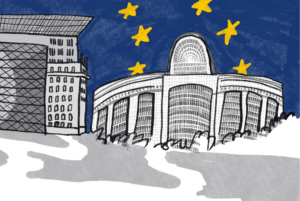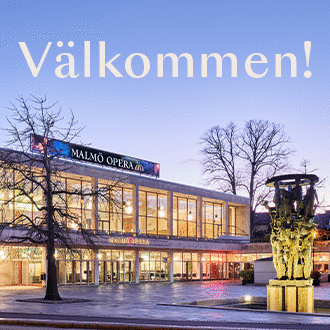The European Union (EU) is a political and economic partnership that represents a collective effort by 27 European countries to create economic cooperation and ensure peace across the continent. In order to delve deeper, we spoke with Maria Strömvik – an expert in the field.
– The EU is the most fascinating attempt to leave the idea that the sovereign state is the most important thing in an international context, says Maria Strömvik.
Maria Strömvik has a background in various research fields related to politics and decision-making in international organisations, particularly within the EU. Her research includes the development of the EU’s foreign policy and its peacekeeping operations. Currently, Maria Strömvik is working on establishing a network for researchers interested in local and national governance within the EU.
– Within the last 10 years I have begun focusing on democracy inside the EU, and how Swedish society participates in forming what the EU should be in the future, she says.
In joining the EU, the member states have agreed to share certain laws, trade freely with each other and cooperate. The EU creates several different types of laws for its member countries which, to varying degrees, dictate national legislation. The EU’s main institutions, like the European Commission, the European Parliament, and the Council of the European Union, help create and enforce these laws.
When you sign the treaties you sign away part of your own independence.
Originally, the EU started as the European Coal and Steel Community (ECSC) in 1951, aimed at preventing war by integrating coal and steel industries. It evolved into the European Economic Community (EEC) in 1957 to create a common market and customs union. The Maastricht Treaty in 1992 established the EU and introduced cooperation in foreign policy, security, and justice. The euro’s introduction in 1999 furthered economic integration. Recently, the EU focuses on digital transformation, climate action, and addressing geopolitical challenges, adapting to global and internal changes. Maria Strömvik briefly details this by explaining:
– Originally, the main aim was to create peace, and this was attempted by forming international treaties and organisations. Because the states were sovereign, no-one could force the state to do anything so nothing ended up happening, she says, and continues:
– What the EU allows is for a state to give up part of their sovereignty and share it with common institutions. The whole corporation is based on international treaties. When you sign the treaties you sign away part of your own indepen-
dence.
EU law is open to input through several channels to ensure transparency and democratic participation. Firstly, the European Parliament plays a significant role in shaping EU legislation. The European Commission regularly consults with stakeholders. The Council of the European Union often consults with national parliaments and engages in dialogue with relevant stakeholders during the legislative process. This openness to input helps ensure that EU laws reflect the interests and concerns of European citizens and stakeholders.
– The EU has two chambers, the Parliament and the Council, and most laws need to pass in both of them. The voting now is done directly to the parliament and the council is created through the national elections – we do not talk about that so much, Maria Strömvik says.
– There are also new laws being passed every week with the possibility of having a say in the process, by responding to a proposal by the commission. You or your organisation can respond to this. The EU does public consultation by publishing a potential law on the website where you can share your opinion.

Climate policy has become a large topic of discussion in the EU. There are many new proposals and initiatives being suggested which could be revolutionary in the way the member states function in terms of climate impact. Strömvik spoke about this in relation to young people.
– Some of these bigger issues such as climate change are not youth issues but will affect younger people even more. I find it sad to see that out of the people who say they intend to vote, there are much fewer young people, she says.
The EU offers several advantages to member states, including economic benefits, stronger regulations and opportunities for citizens. However, the EU also faces disadvantages, such as compromises and a complex bureaucracy. Maria Strömvik highlights some of the common advantages and disadvantages for a country being a part of the EU.
– The advantage is that the EU is globally strong. For instance if the US is making standards where a harmful chemical is allowed in products, and if all the small countries trade individually – the US can force them to accept the chemical. But for the EU, being economically strong, they can enforce their standards, Maria Strömvik says.
– One of the disadvantages is that a state loses some of its independence. For example, the Swedish government cannot decide that foreign people, who are EU citizens, are not allowed to work here. The EU court of justice will start fining Sweden for that law until they change it.
– So for most people it is an advantage, but could be seen as a disadvantage for someone who is more nationalistic. This type of nationalism cannot always play out if you are a member of the EU.
The rise in nationalism in European countries could potentially cause problems, as policies such as prohibiting other residents in the union to come freely into another EU country is against EU law.
– But these countries are being fined for their national laws that break EU law. There are also court cases and discussions trying to solve the rules that these governments are breaking, Maria Strömvik says.
She also discusses the benefits for students and young people in particular, such as programmes and political opportunities. Maria Strömvik notes the Erasmus plus programme which gives EU residents the opportunity to study abroad with funding. She also acknowledge that, due to the EU’s strength, young people have the ability to directly shape the global voices in the upcoming election.










